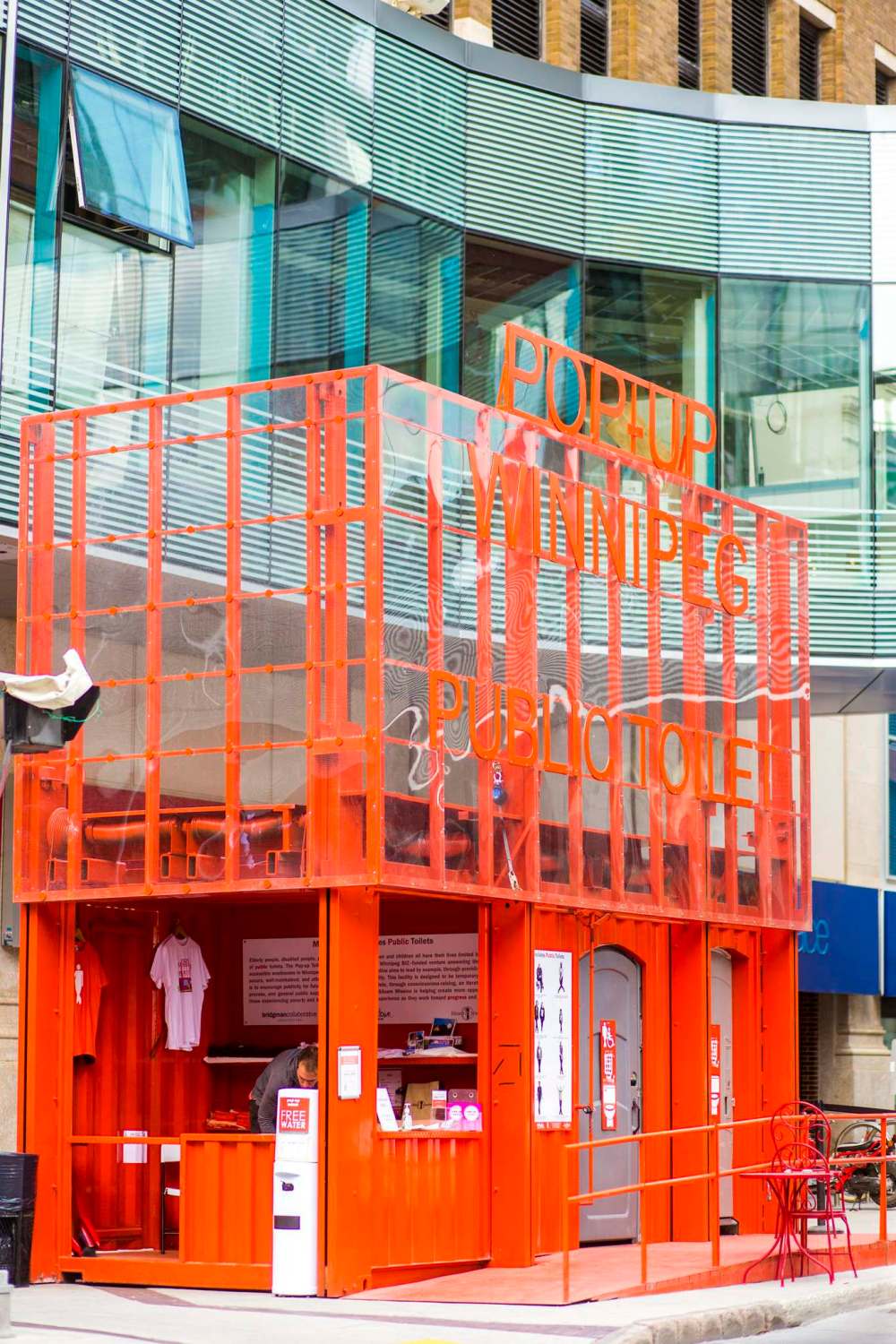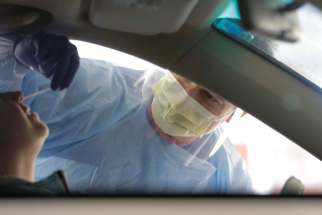City asks downtown businesses to let public use washrooms
Read this article for free:
or
Already have an account? Log in here »
To continue reading, please subscribe:
Monthly Digital Subscription
$0 for the first 4 weeks*
- Enjoy unlimited reading on winnipegfreepress.com
- Read the E-Edition, our digital replica newspaper
- Access News Break, our award-winning app
- Play interactive puzzles
*No charge for 4 weeks then price increases to the regular rate of $19.00 plus GST every four weeks. Offer available to new and qualified returning subscribers only. Cancel any time.
Monthly Digital Subscription
$4.75/week*
- Enjoy unlimited reading on winnipegfreepress.com
- Read the E-Edition, our digital replica newspaper
- Access News Break, our award-winning app
- Play interactive puzzles
*Billed as $19 plus GST every four weeks. Cancel any time.
To continue reading, please subscribe:
Add Free Press access to your Brandon Sun subscription for only an additional
$1 for the first 4 weeks*
*Your next subscription payment will increase by $1.00 and you will be charged $16.99 plus GST for four weeks. After four weeks, your payment will increase to $23.99 plus GST every four weeks.
Read unlimited articles for free today:
or
Already have an account? Log in here »
Hey there, time traveller!
This article was published 25/05/2020 (2027 days ago), so information in it may no longer be current.
People who need washrooms would be welcome to use the facilities of businesses under a new plan responding to Winnipeg’s historic downtown dilemma: where can we go when we have to go?
A proposed pilot project will see the city partner with businesses to keep their washrooms open, accessible and clean for all members of the public.
The city would help fund increased cleaning and increased lavatory supplies for businesses willing to open their bathrooms to the public for free. Those washrooms would then be outfitted with door decals and marketed with the help of Downtown BIZ, so people could simply search for nearby washrooms while in the downtown core.
Also this summer, the city — in collaboration with Downtown BIZ and BridgmanCollaborative Architecture — will return the famed orange pop-up public toilets. The city has in recent years gained national and international attention for the pop-up facility fashioned from an old shipping container, painted a bold shade of orange and moved throughout the downtown over the course of two summer seasons.
“COVID-19 has taught us the importance of a healthy environment, and a healthy environment certainly includes the public toilet.” – Architect Wins Bridgman
The COVID-19 pandemic has steered concerns around public washrooms in two significant ways. Libraries, coffee shops, and other downtown locations where people might once have been able to use the loo have closed in recent months, leading to fewer safe, clean washroom facilities. At the same time, the heightened attention to public health has prompted cities to take a fresh look at public bathrooms as an essential component of a thriving city.
“The city of Winnipeg, like other cities across Canada and throughout the world, have understood the importance… in terms of the revitalization of the downtown economy living with the post COVID-19 world, that to attract people to the downtown we need a sanitary environment, a safe environment for everyone — and that includes public toilets that are safe,” said Wins Bridgman, the architect behind the pop-up public toilet.
“COVID-19 has taught us the importance of a healthy environment, and a healthy environment certainly includes the public toilet.”
Other cities across the country have tried to cover the gaps in accessible washrooms through a variety of initiatives.
A new “mobility response plan” announced this week to help Halifax recover from the impacts of the pandemic will see two portable toilets installed behind the city’s downtown public library, with other stations potentially to come.
Tim Hortons locations across Canada opened their counters and bathrooms in early April to accommodate truckers who had been denied access to washrooms in the wake of COVID sanitation fears.
In Bridgman’s eyes, public washrooms sit at the epicentre of conversations around community support and human dignity. For a city to thrive, people must be out and about, and for people to thrive they must be able to access clean and safe places to go.
“There’s so many needs: it’s for vulnerable individuals that may be living on the street, it’s for seniors that may need to plan trips accordingly if they’re coming down and visiting for appointments, it’s kids, it’s everybody running between meetings,” said Kate Fenske, CEO of Downtown Winnipeg BIZ.

In the past two years, the pop-up bathroom has been open Monday to Friday, 7 a.m. to 4 p.m., staffed by partnerships with local not-for-profits (Siloam House for the inaugural 2018 run, Main Street Project during the shorter 2019 stint) in an effort to raise awareness about the need for more public bathrooms in the city. Operating the “big orange beast,” as Fenske calls it, costs between $40,000 and $60,000 annually.
“It wasn’t a long-term solution and we always knew that,” Fenske said.
“One of the things we’ve been looking at in the last year — even before COVID — was how do we make more public restrooms more accessible and available throughout our downtown.”
This summer’s renewed urgency around the provision of public washrooms has pushed a long-awaited pilot project into high gear.
“One of the options that we’re still hoping we can look at doing a form of this year is a partnership with businesses. We had reached out to businesses last year to see if some of them would be open to allowing their restrooms to open to the public, and then we would work with them to share that information,” Fenske said of the project.
“For us it’s really important to create some continuity… so people know where (the toilets) are, when they’re operating and when they can rely on them,” Fenske said.
The details of the partnership haven’t been ironed out yet, but Fenske said she hopes to see the pilot —alongside the pop-up public toilet — up and running as soon as June.
julia-simone.rutgers@freepress.mb.ca
Twitter: @jsrutgers
The push for public restrooms
In September 2008, city staff were directed to report back to council with options for providing public washrooms in the city’s downtown in response to high rates of public urination and defecation in the downtown and Exchange neighbourhoods. That report was drafted in 2010 but never finalized.
The report, Places to Go, detailed a long history of “comfort stations” and other public restroom availabilities throughout Winnipeg’s history.
Bathrooms scattered throughout downtown in the early 1900s, staffed by attendants, were eradicated by the 1970s thanks to sanitary and budgetary concerns; unsupervised underground bathrooms near the Legislature, erected in 1973, were torn down by the early 2000s because of safety and vandalism issues.
A portable toilet pilot project spearheaded by Downtown BIZ around the time of the city’s report was met with early success, but has since fizzled out.

Julia-Simone Rutgers is a climate reporter with a focus on environmental issues in Manitoba. Her position is part of a three-year partnership between the Winnipeg Free Press and The Narwhal, funded by the Winnipeg Foundation.
Our newsroom depends on a growing audience of readers to power our journalism. If you are not a paid reader, please consider becoming a subscriber.
Our newsroom depends on its audience of readers to power our journalism. Thank you for your support.
History
Updated on Monday, May 25, 2020 7:46 PM CDT: additional edits






